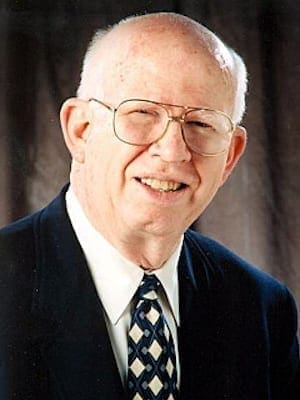I have been thinking about Bill Wilson’s article on the word “just” since it appeared Oct. 31.
In fact, the Rev. Bob Boston, retired Presbyterian minister and counselor, had already chastised me about saying, “I’m just a layman.”
I understand that the phrase tends to create second-class citizenship for the laity. Using laypeople to teach Bible studies is one of the strengths and weaknesses of Baptists churches and other denominations.
The Methodists were so concerned about the lack of trained Sunday school teachers that they started what is now the ChautauquaInstitution in 1874.
I am grateful for all of those wonderful teachers who poured their heart and soul into teaching generations of youngsters who really were not overly enthusiastic about being taught.
Looking back, my teachers were mostly good. Two or three were bad, but only one should have been invited not to teach.
My daughter also had one who should not have been allowed to teach. Her sin was not lack of preparation or knowledge, but rather undue pressure on young children to join the church.
I taught adult Sunday school in two different churches for about 30 years and substituted dozens of times.
I have spoken in worship services since I was in elementary school, and I have written for denominational publications, but all of these experiences have caused me great anxiety.
Public speaking doesn’t bother me. What bothers me is my overwhelming desire to get it right.
Once I had the great honor of being asked to train the lectors in one of our local Roman Catholic churches.
The priest was a tremendous help and reassured me in every way he could. I had a wonderful time, and the readers seemed to profit from the experience. It was one of the highlights of my faith journey.
Teaching is a great responsibility, and I do not want to give people wrong or misleading information. The question of being “just a layman” (not a seminary graduate) is a serious matter with me.
I always study from several translations of the Bible, and I always read two or three commentaries during my preparation. The fact remains that I have not attended seminary.
I have been exposed to some really outstanding preachers and my share of mediocre ones. I have made a good-faith effort to listen and to learn. I have lunch with ministerial friends once a week, and they are great teachers and mentors.
Since I teach communication skills, I realize that everything I teach is strained through my perception.
I am aware that what I say is not always what my listeners hear. I think our dependence on lay leadership is the best way to reach people, but I am also aware of this approach’s problems.
My problem – and I think the problem for many others in my position – is that I like to teach. I enjoy the preparation for teaching and writing. How do I make certain I get it right? How do I keep from sharing subtle biases?
I am painfully out of step with many of my denominational leaders, their positions, politics and theology, but I do not want that to creep into my teaching unless it is a matter of integrity.
For example, I believe that women are inspired to preach and teach and that the God I serve does not discriminate.
I agree with Bill Wilson and do not want to foster a priestly class, but how do we empower laypersons without risking the specter of false prophets?
I am a layperson who speaks out – and sometimes too much. Sadly, I have not always been right, but I am willing to take my chances on church polity matters.
My anxiety arises over my ability to teach God’s Word with accuracy, and Wilson’s column has caused me to think deeply about the matter.
MitchCarnell is a consultant specializing in interpersonal and organizational communication. He is the editor of “Christian Civility in an Uncivil World.” He and his wife are active lay members of First Baptist Church of Charleston, S.C. He blogs at MitchCarnell.com.
A member of First Baptist Church of Charleston, South Carolina, he was the author of “Our Father: Discovering Family.” Mitch’s writings can be found at MitchCarnell.com.

